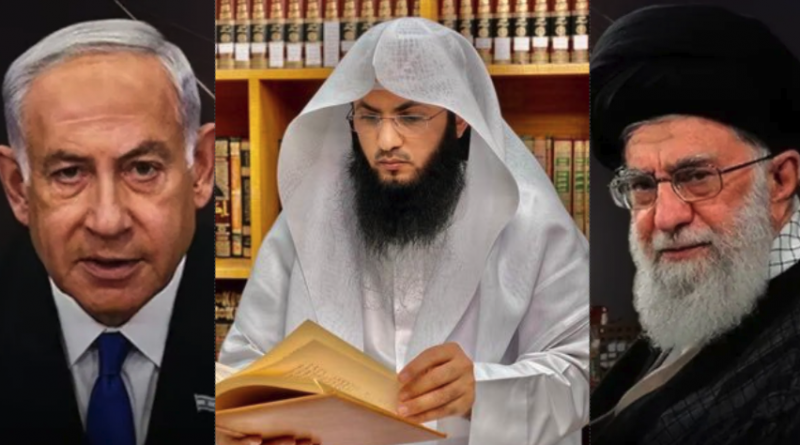Kuwaiti Scholar: Iran Hides Behind Palestine While Waging War on Arabs and Muslims
Riyadh — In a bold and widely discussed statement, Kuwaiti academic and commentator Dr. Daghash Alajmi has accused successive Iranian regimes of wreaking havoc across the Arab and Islamic world, prompting a deeply unsettling comparison with Israel’s occupation of Palestine. His post, written in Arabic and shared across Gulf media circles, has sparked new introspection over Iran’s legacy of interference, violence, and sectarianism.
Dr. Alajmi began his post by recalling some of the darkest episodes in recent Islamic history: “Iran attacked peaceful worshippers in the Grand Mosque in Makkah more than once.” He referenced the 1987 tragedy during Hajj when Iranian pilgrims staged a violent protest, leading to hundreds of deaths.
“In 1987, it attempted to occupy the Grand Masjid,” he wrote, a reference to the violent confrontation in which Saudi security forces and foreign pilgrims perished. “In 1989,” he continued, “it killed many and smuggled weapons and explosives with the intention of ruining the Masjid and terrorizing pilgrims.”
Dr. Alajmi then traced what he called Iran’s “trail of terrorism” throughout the region, beginning with its actions in the Gulf. “Iran bombed Kuwait several times, practised terrorism, hijacked aeroplanes, and attempted to assassinate its emir in the 1980s,” he wrote. He further highlighted Iran’s enduring occupation of three Emirati islands, calling attention to the UAE’s long-standing territorial dispute with Tehran over Abu Musa and the Greater and Lesser Tunbs.
In one of his more poignant statements, he turned to the region of Ahwaz, a majority-Arab area in Iran. “Iran occupied Ahwaz—13 times the area of Palestine—killed its people, tortured them, and plundered their wealth.” He emphasized that this forgotten region suffers systematic oppression despite being rich in oil and resources. “Its people are Arab Muslims, yet they remain forgotten,” he implied.
Turning to Syria, Dr. Alajmi condemned Iran’s military presence and support for Bashar al-Assad: “Iran occupied much of Syria, killed hundreds of thousands, tortured them in various ways, and displaced millions.” In Yemen, he declared, “Iran occupied Sana’a, displaced its people, and killed many Yemenis,” referring to Tehran’s backing of the Houthi militia.
On Iraq, he was equally harsh: “Iran occupied Iraq, displacing millions of its people, killing hundreds of thousands, and spreading corruption throughout all parts of Iraq.” He accused Iranian influence of hollowing out Iraqi state institutions, eroding sovereignty, and fueling sectarian divisions.
Dr. Alajmi did not stop there. “It caused murder in Lebanon,” he said, citing Tehran’s support of Hezbollah and its political interference. He also referenced Bahrain, saying Iran “moved its proxies… where they killed, burned, and destroyed until the state almost collapsed.”
All of this, he warned, cannot be dismissed as isolated events. “Much, much more corruption was spread by successive Iranian governments,” he wrote. For him, the consistent pattern of aggression points to a broader agenda of domination under the guise of revolution and resistance.
In a striking and controversial turn, Dr. Alajmi drew a direct comparison between Iran and Israel. “In contrast, the Zionists occupied Palestine,” he wrote. “Which of the two is more corrupt and corrupting in our Islamic and Arab world? And which of the two is more evil?”
By posing this comparison, he challenged a long-standing dogma in Arab political discourse—that Israel alone is the region’s primary source of suffering. His words reflect a growing Gulf sentiment that questions Iran’s ideological hypocrisy: using the Palestinian cause as a cover while destabilizing Arab states and targeting Sunni populations.
His post has resonated widely, especially among Gulf citizens who have lived through decades of Iranian-backed unrest. In an age of shifting alliances and increasing calls for regional self-determination, Dr. Alajmi’s message is a call for clarity: “We must confront the real source of destruction in our region—not just the familiar enemy, but the one cloaked in religious slogans and revolutionary slogans.”
Shaykh Dr. Daghash ibn Shabib Al-Ajmy is a prominent Salafi scholar from Kuwait. He holds a PhD in Usool ud-Deen from Kuwait University and has served as an imam, khateeb, and professor since 1999. He studied under renowned scholars such as Shaykh Ibn Baz, Shaykh Ibn Uthaymeen, and Shaykh Rabee’ al-Madkhali. Dr. Al-Ajmy has authored and verified several respected Islamic works, and holds ijazaat in Sahih al-Bukhari and Muslim from over ten senior scholars.



